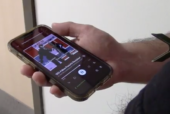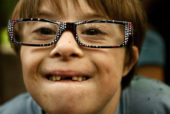Discrimination against Asian Americans and Pacific Islanders has increased drastically over the course of the pandemic.
A recent study from the Center for the Study of Hate and Extremism at California State University San Bernardino found a 149-percent increase in anti-Asian hate crimes between 2019 and 2020.
After a gunman killed eight people in Atlanta on March 16, most of whom were Asian women, President Joe Biden noted the increased racism towards Asian communities.
“They’ve been attacked, blamed, scapegoated and harassed; they’ve been verbally assaulted, physically assaulted, killed,” Biden said.
While this mistreatment is making headlines now, Asian Americans and Pacific Islanders have long faced discrimination in the U.S.: The Chinese Exclusion Act in 1882 prohibited all immigration of Chinese laborers. During World War II, the federal government forced Japanese Americans to leave their property and belongings to live in concentration camps.
And many people of Asian descent say discrimination based on their race is part of their day-to-day lives. Huy Nguyen, a student at California State University Long Beach, said he’s experienced discrimination ever since coming to the U.S. in 2012.
“When I first come to America,” recalled Nguyen, “I had the same thing… I lived in a dorm with four white guys. At first, they were very nice to me. They were talking friendly, but then after a couple days they were getting cold and didn’t talk to me anymore.”
“There’s always been that history and precedent [of discrimination against Asian Americans],” said Teresa Williams Leon, a professor of Asian American Studies at California State University Northridge.
“But I think in the last year,” Williams León added, “with the coronavirus originating in Wuhan, China, the rhetoric by the previous president, I think all of those things, and people feeling frustrated… this perfect storm came together to kind of blame people of Asian descent.”
Tiffany Do — a community organizer for the Los Angeles-based advocacy group Chinatown Community for Equitable Development — said Asian Americans face repeating cycles of being scapegoated.
“I think mass media for a large part has only jumped on now… A lot of our elders are just like, ‘This is nothing new,’” Do said. “We’ve been facing this even before the pandemic.”.
The reporting forum Stop AAPI Hate recently released a report on nearly 3,800 anti-Asian hate incidents it tracked between March 2020 and February 2021.More than two-thirds of the reported incidents targeted women. Most of the incidents involved verbal harassment and “deliberate avoidance of Asian Americans”; 11% of the incidents involved physical assault.
Williams León connected much of this discrimination with former president Donald Trump, who often referred to the COVID-19 virus as the “China Flu” and the “kung flu.”
“It has been a part of America’s subconscious to have these kinds of prejudices always, sort of, underneath the surface of American society,” said Williams-Leon. “So when things like this happen and you have a president using inflammatory language, it all boils up to the surface. And that’s what we’re seeing.”
Do’s organization works on fighting gentrification and supporting businesses in L.A.’s Chinatown neighborhood. The area’s businesses have been hit hard during the pandemic, Do said.
“Number one, there was the beginning of the economic violence when people decided not to come to Chinatown,” Do said. “and that really hurt our businesses. They saw Chinatown as a pariah where the virus would be when actually we’ve been safe.”.
But even before the virus was discovered in the U.S., Do said visitors stopped coming to Chinatown She criticized government officials for failing to help small businesses after forcing them to close down.
This isn’t the first time Asian community businesses have felt abandoned by authorities. In the 1992 L.A. riots, looters targeted many Asian-owned businesses. Do noted the Koreatown neighborhood was all but abandoned by police.
“We cannot trust the authorities or the people in power at all. They will continue to try and put more funding into police rather than actually keeping us safe.”
Even with the COVID-19 vaccine rolling out, businesses opening back up and people returning to work. Do said she thinks anti-Asian American discrimination will get worse before it gets better.
“Will there be an end? Absolutely not,” Do said. “I had a speech at a rally recently against anti-Asian violence, where I said it will get worse before it gets better. So, I don’t think we’re out of the worst part yet. There’s no way.”
The following team produced this show:
- Angela Gonzalez
- Kristyn Karmazyn
- Elizabeth Medina
- Daniela Torres
- Bryce Wayne

 Tweet this Video
Tweet this Video Share on Facebook
Share on Facebook Share via E-mail
Share via E-mail

